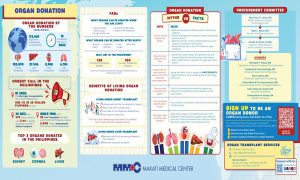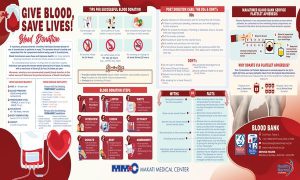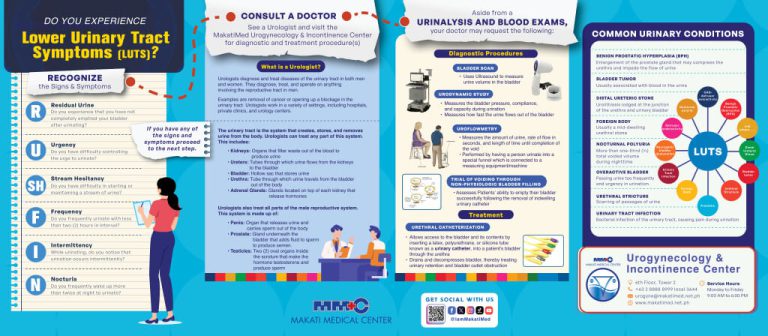The Immune System and Vaccines
As different strains of the virus emerge, building up the immune system to have a strong barrier against infectious diseases has never been more important. It fights off foreign substances from invading healthy cells in the body. Not only that, but it is also the main focus of immunizations.
When the immune system encounters antigens—substances that induce immune system response—from an infection, it also creates memory cells. If the body encounters the same invaders again, these cells quickly go on attack mode because they are already familiar with dealing with them. This process is similar to how vaccines work.
Vaccines simulate an infection but never cause illnesses. Instead, it teaches the body to fight a disease so that when it encounters the actual pathogen or disease-causing organisms, the immune system would know what to do.
There are multiple ways on how to boost the immune system. Read on below to learn more.

The Immune System
The immune system is composed of a network of proteins and cells protecting the body from outside invaders, like fungi, bacteria, viruses, and toxins. People will be vulnerable to different diseases and illnesses as they are exposed to pathogens daily without a strong immune system.
This network of cells can identify the self from the non-self, which are foreign and are from the body. At an early stage, the immune system learns to ignore self-proteins and only deal with foreign cells by detecting the proteins on all the surfaces of cells.
Once the immune system detects an infiltrator, it takes action through what is called an immune response.
Innate Immune System
Also known as natural or genetic immunity, the innate immune system is the kind of immunity a person is born with. The natural immune system is made up of barriers that keep foreign particles away from the body and hinder them from spreading.
This system includes:
- Physical barriers — skin, respiratory tract, eyelashes, and other body hairs
- Defense mechanisms — tears, mucous, sweat, and stomach acid
- General immune response — inflammation (brings immune cells to the infection site and increases blood flow to the area), complement (marks pathogens for extermination), and other non-specific cellular responses
The presence of antigens activates the innate immune response. Since the system’s response is always general and non-specific, anything foreign and non-self is a target.
Acquired Immune System
A person develops an acquired immune system throughout their life as they get exposed to different antigens. Immunity is created when the system builds a defense against a specific antigen.
The immunity can come from:
- Vaccines
- Exposure to a disease or infection
- Another person’s antibodies
When a vaccine or a disease introduces a pathogen to the body, the system identifies the foreign bodies and learns to target them in the future by making new antibodies. A person can also acquire antibodies from another person. However, this immunity is only temporary.
There are two (2) kinds of acquired immunity: active and passive. Active immunity is developed in response to a vaccine or infection. Meanwhile, passive immunity is generated by receiving antibodies from someone or somewhere else.
Passive immunity can be acquired through maternal antibodies (through breast milk, across the placenta, etc.) and immunoglobulin treatments (antibodies used to treat people at risk of infection, like a baby born to a mother with hepatitis B or antivenom injected after a snakebite).
10 Ways to Strengthen the Immune System
A healthy lifestyle is required to get the immune system to work properly. When good health guidelines are followed, the body will function better and will be able to protect itself from different illnesses and diseases. Here are ten (10) ways on how to strengthen the immune system:
1. Get the right amount of rest
In a 2019 survey, Filipinos ranked fourth (4th) in the most sleepless country globally. An average Filipino sleeps a little more than six (6) hours a day, while the recommended is between seven (7) and nine (9) hours a day.
Resting is tied with immunity. When people have poor sleeping habits, they are more vulnerable to sickness. To improve sleep, try limiting screen time by putting away devices an hour before going to bed. It means avoiding using computers, phones, and the TV.
2. Manage stress levels
Stress and anxiety affect immune health. Both emotions promote inflammation which causes imbalances in immune cell function. Additionally, research suggests that prolonged psychological stress can lead to suppressing immune response.
Living in a pandemic is a stressful time. It is best to practice mindfulness by meditating, journaling, doing yoga, and exercising to help manage stress levels. If stress and anxiety are too much to handle, licensed therapists and counselors can help anyone struggling to cope.
3. Stay active
Engaging in moderate exercise can boost the immune system. Studies found that moderate exercise can increase the effectiveness of vaccines.
Exercise levels vary per person. Anything higher than 60% of a person’s heart rate is considered intense exercise. Moderate exercise includes 150 minutes a week of light hiking, brisk walking, swimming, steady cycling, and jogging.
4. Take steps to avoid infection
A way to strengthen the immune system is to avoid encountering infections. Good personal hygiene habits like washing hands thoroughly, covering the mouth when coughing or sneezing, and not sharing personal items or eating utensils can prevent disease.
Other ways to avoid getting sick are following food safety practices, taking travel precautions, preventing wound and bug bite infection, and controlling the population of rodents in or near the home.
5. Be updated with all recommended vaccines
Vaccines are made from weakened parts or versions of disease-causing pathogens, or contain biological constructions that enough to trigger or create an immune response. When injected, the body develops immunity toward the actual illness. With this, it is best to stay current with recommended vaccines such as those against measles, tetanus, and COVID-19.
6. Consume immunity-boosting foods
There are several foods that can boost immunity. These include legumes, seeds, nuts, vegetables, and fruits. Garlic is a well-known immune booster. Foods rich in antioxidants lower stress levels and strengthen the immune system.
On the other hand, some foods weaken the immune system as well. These include salty foods like fast food and chips, processed and charred meats, and highly refined carbs like sugary baked goods and white rice may adversely affect the immune system.
7. Eat more foods rich in probiotics
Certain foods contain good bacteria called probiotics. When probiotics populate the digestive tract, they can help immune cells differentiate between healthy and harmful cells. Some examples of probiotic foods are kimchi, yogurt, pickles, miso, and kombucha.
8. Supplement wisely
No supplement can treat COVID-19. Most people take supplements to build up the body’s immune response and build protection against prevalent diseases. Some vitamins and minerals that help strengthen the immune system include vitamin C, vitamin D, and zinc.
Vitamin C is an antioxidant that boosts the production of cells, which helps protect the body from infection. Meanwhile, vitamin D has immunoregulatory and anti-inflammatory properties that are vital for immune function. Finally, zinc stimulates specific immune cells.
9. Cut back on alcohol intake
According to American physician Dr. Alex Mroszczyk-McDonald, “14 drinks per week or more than five to six drinks at a time” is considered too much alcohol, therefore suppressing the immune system. He advises that a person should only have two (2) to three (3) drinks at a time per week.
If a person is immuno-compromised, it is best to abstain from alcohol altogether as every effort for health improvement can help reduce the risks of getting diseases.
10. Shower after sweating
Letting sweat dry off on the skin allows bacteria to grow. It does not only trigger acne breakouts but also encourages fungus to breed. Additionally, if one has skin abrasions, the area is more likely to get infected. With this, people should make it a habit to shower after working out.
Fight Infections and Illnesses During This Unprecedented Time
Good health has never been more crucial during a pandemic. As stated above, there are numerous ways to boost immunity. To prevent any diseases, one must take care of their immune system and do everything to strengthen it.
For any health concerns, feel free to reach out to Makati Medical Center. Our team of health professionals provides world-class service in the diagnosis, management, or treatment of diseases.











